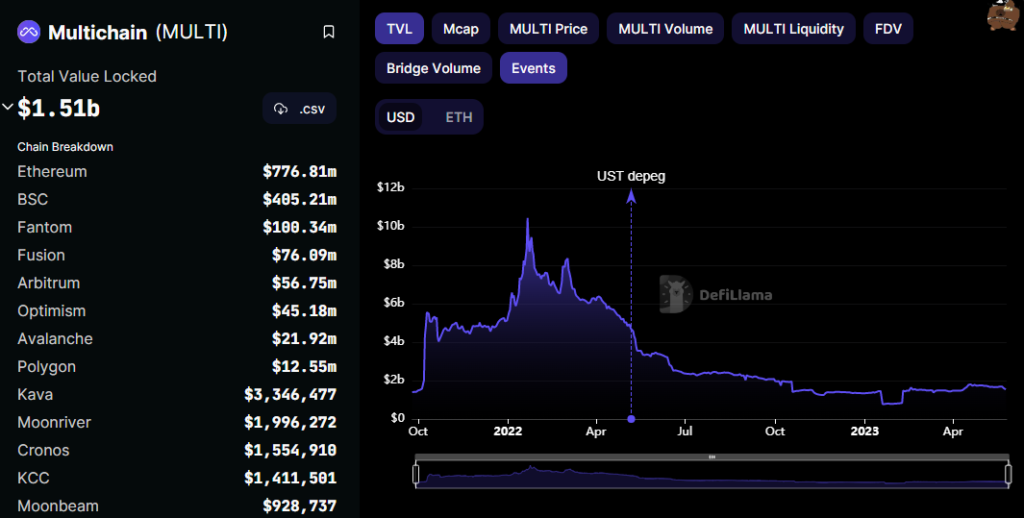Crypto embraced, then forgotten by Chinese state television
On May 23, China Central Television (CCTV), the country’s government-owned broadcasting corporation, aired a short, 98-second segment regarding the adoption of cryptocurrencies in Hong Kong.
During the session, state news anchors briefed its audience on how Hong Kong regulators “have made final preparations” for the trading of virtual assets in the special administrative region and will accept applications from virtual asset trading platforms. Interestingly, nothing overtly negative about cryptocurrencies was mentioned during the broadcast – a sharp contrast to China’s official policy that banned cryptocurrency mining and exchanges elsewhere in the country.
For some viewers, such as Binance CEO Changpeng Zhao, the programming represented a “big deal.” Zhao reports that “the Chinese speaking communities are buzzing. Historically, coverages like these led to bull runs.”
Unfortunately, the euphoria was short-lived, as Chinese authorities appear to have taken down the link just two days after the program aired. This wasn’t the first time such incidents have occurred. Last month, Douyin, the Chinese version of TikTok, began publishing cryptocurrency price quotes within its in-app search index. The move stirred a major bullish frenzy among Chinese crypto users, but the price quotes were removed from the app just one day later, replaced by a message stating: “Unofficial digital currencies do not possess the same legal standing as fiat currencies. Please invest cautiously.”

Hong Kong finalizes cryptocurrency regulations
In addition to allowing virtual asset trading platforms to obtain proper licensing, SFC officials stated on May 23 that exchanges could also provide services to retail investors, contrary to its guidance last May that focused on an institution-only approach.
Shortly after the announcement, cryptocurrency exchange Gate.io kickstarted its Gate.HK platform for registration and trading services in the special administrative region. Then, Hong Kong virtual bank ZA Bank said it would launch virtual asset trading services for retail investors under the new Hong Kong licensing regime. Now that the rules are crystal clear, the SFC wrote:
“Operators of virtual asset trading platforms who are prepared to comply with the SFC’s standards are welcome to apply for a licence. Those who do not plan to do so should proceed to an orderly closure of their business in Hong Kong.”
Do Kwon’s bail revoked
Before the collapse of the $40 billion Terra Luna (LUNC) ecosystem in May 2022, Terraform Labs co-founder and CEO Do Kwon was known for making fun of critics based on their level of wealth compared to himself (“your size is not size.”)
However, it appears that Kwon has finally gotten into some trouble that cannot be solved with money. On May 25, the High Court of Montenegro revoked both Kwon’s, and former Terraform Labs chief financial officer Han Chong-joon’s 800,000 euro ($858,000 bail and ordered their return to jail from previous house arrest. The blockchain executives were apprehended on March 23 in Podgorica Airport over allegedly falsified documents after being on the run for roughly six months from an Interpol Red Notice.
Kwon faces up to 40 years imprisonment in the criminal proceedings against him in South Korea and five years in prison on the falsified charges in Montenegro. Court filings state:
“In the renewed proceedings, the court will proceed according to the High Court’s grounds for termination and after that make a decision based on the proposal of the defense counsel for the defendants to accept bail. By the decision of this court, the defendant’s detention was extended. The main hearing is scheduled for June 16.”

Cross-chain token plunges 30% after arrest rumors
On May 24, the token price of Singaporean cross-chain router protocol Multichain (MULTI) fell by 30% over 24 hours to trade at $4.97. The sell-off began after users reportedly had abnormally long transaction times following a recent backend node upgrade that caused certain routes, such Kava, zkSync and Polygon zkEVM, to become “temporarily suspended.”
While the project promised that “all affected transactions will arrive after the upgrade is complete,” investor alarm turned into a full-blown panic after one user tweeted arrest rumors. The tweet, which garnered 820,000 views, alleged without evidence that Multichain developers had been arrested by Chinese police “with $1.5 billion dollars of contract funds under control.” Multichain is currently headquartered in Singapore with around $1.6 billion in total value locked.
Alfred Xu, a Multichain co-founder, quickly stated thereafter in the protocol’s Chinese Telegram chat that: “Currently all team members are safe and sound, the main operations are proceeding as normal.”
However, on May 25, Chinese blockchain news aggregator PANewsLab reported that Multichain co-founder and CEO Zhao Jun is currently “unreachable.” At the same time, DeJun Qian, another co-founder of Multichain, said on Twitter that while he is personally “safe and sound,” he, too, could not reach fellow co-founder and CEO Zhao Jun.
On May 25, Binance announced that it would be suspending 10 bridge networks associated with Multichain until it receives clarity from the development team. It has since resumed the Fantom to Ethereum Multichain bridge. The same day, Andre Cronje’s Fantom protocol ceased providing liquidity with MULTI on the decentralized exchange Uniswap due to uncertainty surrounding the development team but said funds had not been sold. Approximately $777 million in funds of Ethereum, $405 million on BNB Chain, and $100 million in funds on Fantom are currently held with Multichain.

Memecoins come, memecoins go
After a period of crazy returns on investment and joint listings on Asia Pacific-focused crypto exchanges, the price of memecoins such as Pepe Coin (PEPE) and Milady (LADYS) have fallen by over 50% within the past two weeks. Though, in hindsight, this shouldn’t have come as a surprise to anyone as developers of such tokens have warned that the coins they created have “no intrinsic value,” and are “completely useless.” According to a report published by cross-chain wallet developer BitKeep:
“It is important to recognize that memecoins derive their value primarily from short-term hype and speculative fervor. Consequently, the likelihood of these coins retaining any significant value over the long term is relatively low. Memecoins typically exhibit remarkably short life cycles, and their popularity tends to wane relatively quickly. Therefore, it is prudent to approach memecoins as short-term investments that are best bought and sold during periods of peak popularity.”

Outrage as $1.8B ‘DGCX’ crypto scam ringleader mocks victims: Asia Express